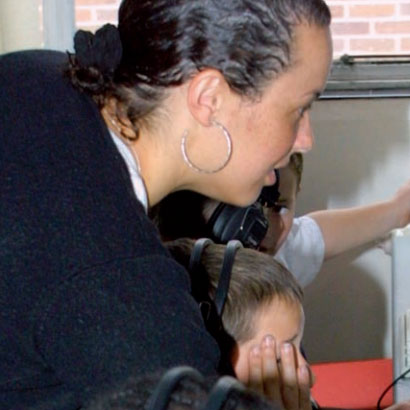
There’s a growing feeling that assessment should be more flexible, focus on progress and reflect the needs of each learner. The Qualifications and Curriculum Authority (QCA), talking to teachers and school leaders, has developed four principles to support schools when talking about assessment.
The learner is at the heart of assessment: It’s clear that many learners feel detached from the process of assessment. Assessment, they feel, is something that’s done to them. To develop as successful learners, young people need to be actively involved in their own assessment through a range of different conversations with teachers, peers and others outside the classroom. Learners can, for example, use forums or electronic galleries to present and share their work and ideas to real audiences.
They can invite feedback from peers and the wider community to identify possible improvements. When using ICT, learners should reflect on the process they have gone through to create a final product, whether it’s a presentation, a model, a game or a system for others to use. Learners can often make effective use of audio recording features to explain the decisions they have taken or use software features to track changes to help them reflect on how they have improved. In these ways, learners are encouraged to take greater responsibility for their own learning and deciding their priorities for development.
Assessment needs to provide a view of the whole learner: ICT plays a valuable role in contributing to a picture of the learner that values the broad range of attitudes, attributes and skills found in the aims of the curriculum and personal, learning and thinking skills (PLTS).
The use of ICT can provide opportunities for learners to develop as creative thinkers able to use technology to develop their ideas, explore possibilities, seek innovative alternatives and make new connections. Learners develop as independent enquirers when provided with opportunities to determine for themselves the information, ICT tools and techniques they need to answer questions, test hypotheses and solve problems. They shouldn’t just develop skills to locate information, but should analyse and critically evaluate information, judging its relevance, purpose, accuracy, plausibility, value and possible bias. ICT provides powerful tools for learners to communicate collaborate with others and share ideas on a local, national and global scale. The challenge here is to identify these opportunities and find ways to build these into your assessment processes. You might also explore ways to draw on evidence across and beyond the school or find ways for parents, carers, peers or members of the wider community to contribute to the assessment of a learner’s achievement. For example, outside school, learners might work collaboratively in multi-player games, or be part of online support communities or contribute to knowledge creation through contributing to wikis. They can be adept at managing a number of social network spaces or show remarkable resilience when trying to get the next level of a computer game! Making these kinds of links can be particularly motivating for learners as it helps them to connect the skills and aptitudes they show outside school with those needed to succeed in learning.